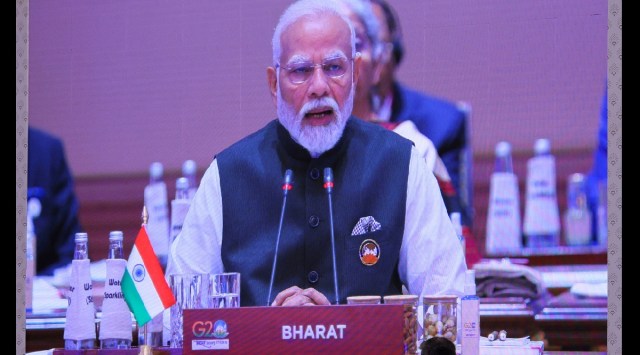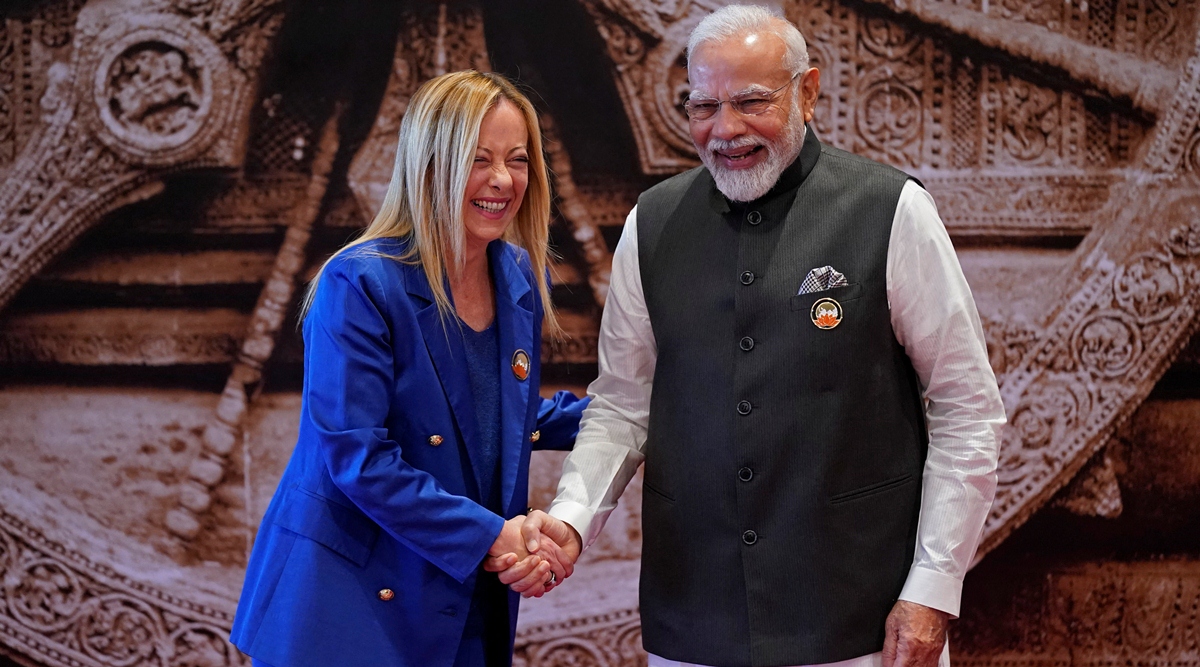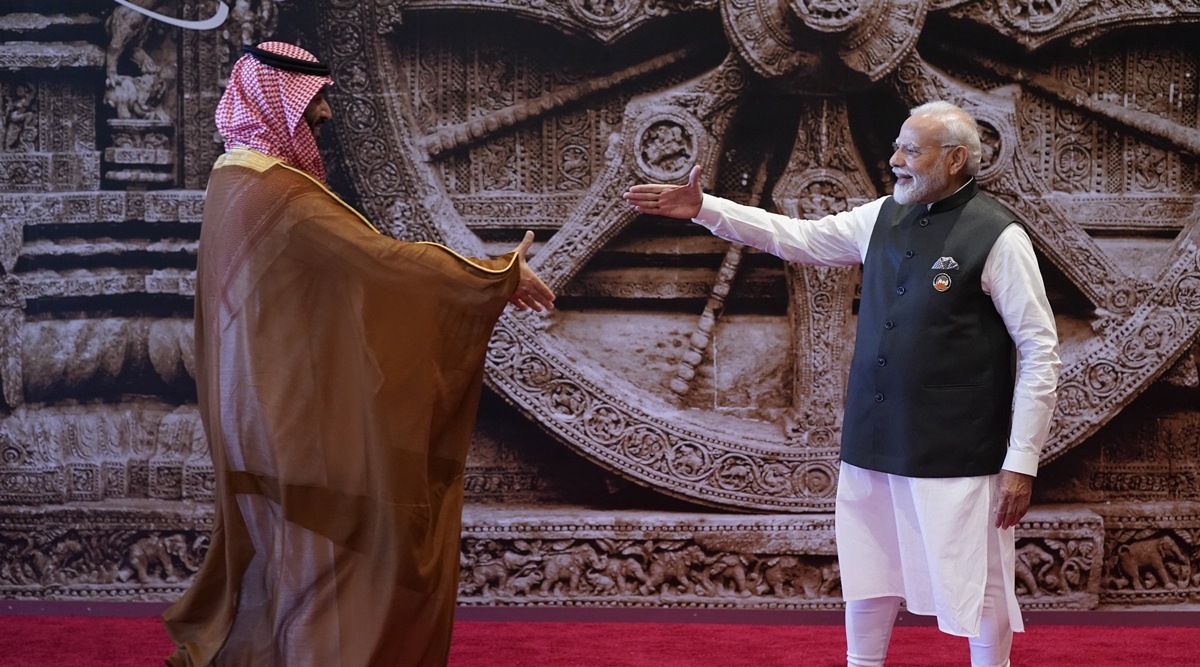Official badge and posters to country card, Bharat branding loud and clear
Bharat was also visible on posters that dotted Bharat Mandapam, where the two-day summit is being held, although the posters had India, too, written on them.
 A screen displays Prime Minister Narendra Modi at the International Media Centre, as he sits behind the country tag that reads "Bharat", while delivering the opening speech during the G20 summit in New Delhi. (Reuters)
A screen displays Prime Minister Narendra Modi at the International Media Centre, as he sits behind the country tag that reads "Bharat", while delivering the opening speech during the G20 summit in New Delhi. (Reuters) From the country card at the G20 Summit to official access badges for government officials, the push towards creating a prominent branding for Bharat was loud and clear on Saturday.
This was the first time the ‘Bharat’ country card was displayed at any global summit — a deviation from the tradition of displaying ‘India’ in the country card — and came to light during Prime Minister Narendra Modi’s speech.
 Prime Minister Narendra Modi welcomes US President Joe Biden at the Bharat Mandapam on Saturday.
Prime Minister Narendra Modi welcomes US President Joe Biden at the Bharat Mandapam on Saturday.
Bharat was also visible on posters that dotted Bharat Mandapam, where the two-day summit is being held, although the posters had India, too, written on them.
A free magazine brought out for the event by the government is also titled “Bharat — The Mother of Democracy.” The magazine, which talks about the “democratic ethos” of Bharat over thousands of years, starting with the Vedic era, highlights in the first page that Bharat is the country’s official name and that it is mentioned in the Constitution, as also in the discussions between 1946 and 1948.
 Prime Minister Narendra Modi welcomes Italy Prime Minister Giorgia Meloni at the Bharat Mandapam on Saturday.
Prime Minister Narendra Modi welcomes Italy Prime Minister Giorgia Meloni at the Bharat Mandapam on Saturday.
“In Bharat that is India, the view or the will of the people in governance has been the central part of life since earliest recorded history,” the magazine states.
Asked about plans for a more robust push to brand Bharat, a senior government official told The Sunday Express that it will be done as and when it is felt necessary. “There are no ready plans to push the branding initiative. It will be done constantly in various ways where feasible,” the official said.
 Prime Minister Narendra Modi welcomes Germany’s Chancellor Olaf Scholz at the Bharat Mandapam on Saturday.
Prime Minister Narendra Modi welcomes Germany’s Chancellor Olaf Scholz at the Bharat Mandapam on Saturday.
The recent push for specifically referring to India as Bharat first came to light when the government earlier this week sent out a G20 Summit dinner invitation from the “President of Bharat”, as against President of India, which has been the norm for official dinner invites. This triggered a political row, with many Opposition leaders questioning the move.
Additionally, a government booklet on the Prime Minister’s visit to Indonesia for the 20th ASEAN-India Summit and the 18th East Asia Summit also referred to him as the Prime Minister of Bharat.
 Prime Minister Narendra Modi welcomes Saudi Arabia’s Crown Prince Mohammed bin Salman Al Saud at the Bharat Mandapam on Saturday.
Prime Minister Narendra Modi welcomes Saudi Arabia’s Crown Prince Mohammed bin Salman Al Saud at the Bharat Mandapam on Saturday.
The NDA government at the Centre has been stressing on the need to “decolonise minds” and take pride in India’s civilisational heritage. Several British-era military customs and traditions have been changed over the last few years, the most prominent being dropping the Christian hymn ‘Abide With Me’ from the Beating Retreat ceremony last year.







